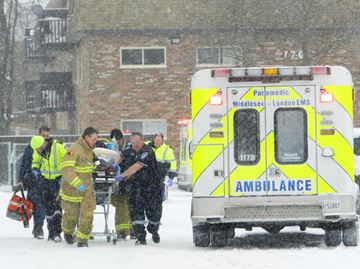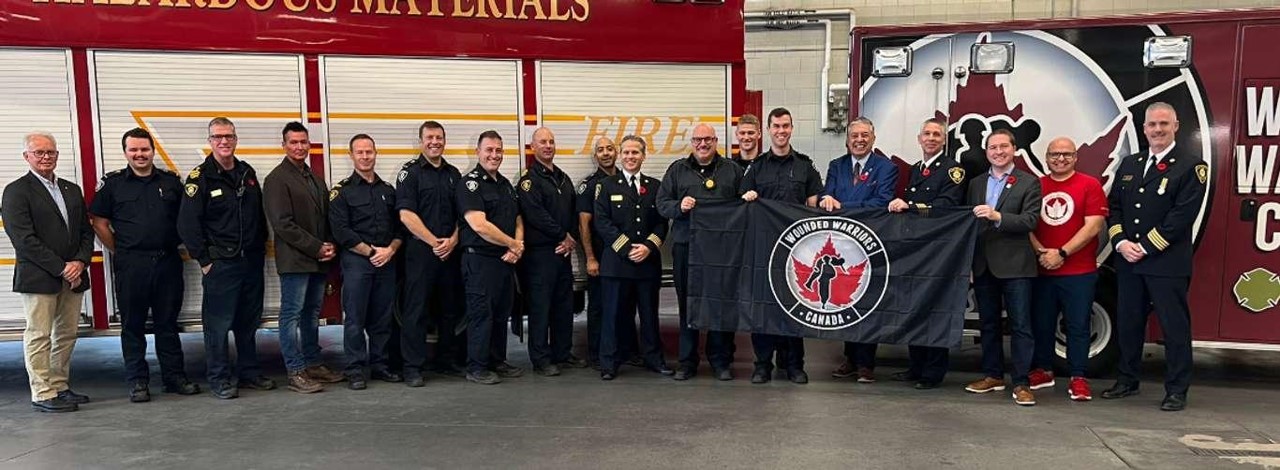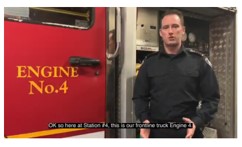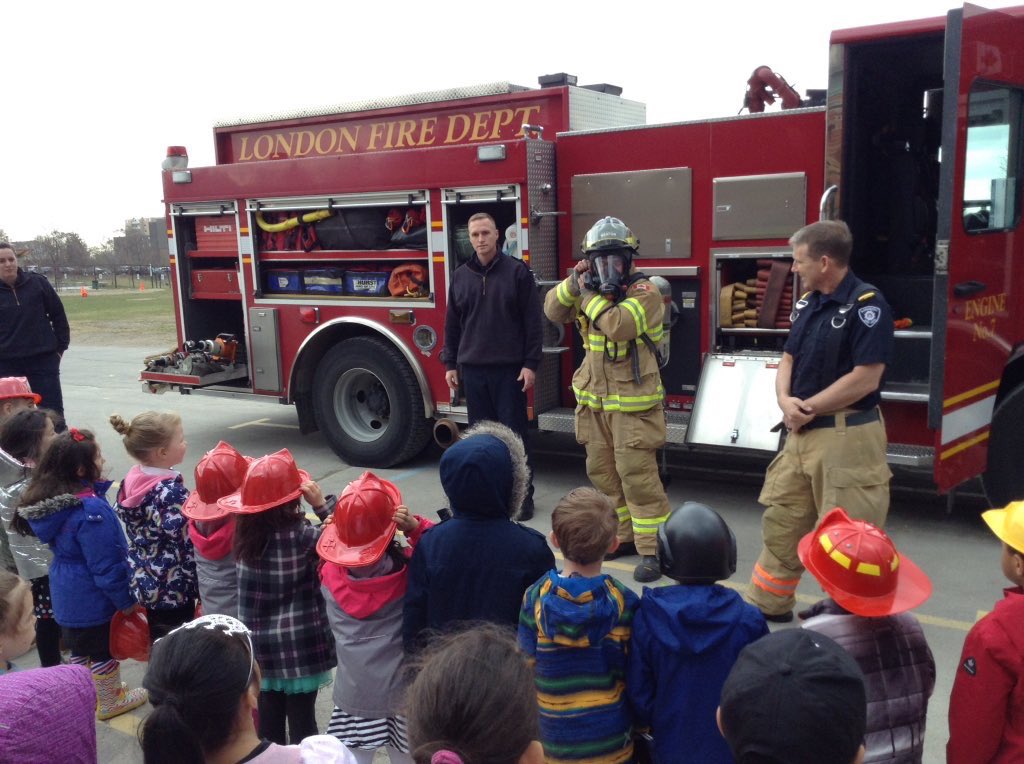
Winter 911 – Craig Gilbert/London Community News
London firefighters and paramedics rush a stabbing victim to a waiting ambulance on Viscount Road Jan. 2.
The “Polar Vortex” that descended on London this week brought with it the most challenging conditions emergency responders may have to deal with all year.
Extreme cold bursts pipes and water mains, sets off false fire alarms, freezes hydro lines and blows transformers. Snow and slush turn roads into skating rinks and the cars abandoned in snow banks and greasy intersections form an obstacle course for fire trucks and ambulances.
And whether first responders set out wearing a badge, bunker gear or medical gloves they were heading into a busy, dangerous and uncomfortable shift as London’s all-time record low temperature (-21.7C in 1942) was shattered pre-dawn Tuesday when it was -26 with a wind chill of -41.
From the fire hall to the call, just about anything than can go wrong is more likely to during the winter, according to one veteran London firefighter.
“It’s the absolute worst possible time of year for us,” he said after returning from a call Tuesday evening. “But ‘no’ is not an option so we get sent out to all sorts of things.”
When a call for service comes in, the challenge starts as soon as the truck leaves the hall. Many drivers have the heaters cranked and don’t hear the approaching sirens and the massive engines, ladder trucks and tankers are even more challenging to drive in winter conditions.
Then there’s the cars abandoned in the road, of which there were plenty right across southwestern Ontario: by 5 p.m. Tuesday the CAA had fielded more than 7,600 calls, double a normal winter’s day, most for a boost or a tow.
And finally the obvious problem: water, and lots of it.
“You have to keep the water moving or it’ll freeze up right in the truck,” he said. “Today we had a truck going from call to call and the water actually froze up in the pipes while it was out on the road. They had to have the pipes replaced so they swapped it for a space truck, and even the spare started to freeze up.”
Once at an active fire, the incident commander has to keep a close eye on the amount of water put on to a building. As it freezes and accumulates, the weight of the ice can cause a collapse.
The ice also coats walking surfaces inside and out, and mist from the spray can accumulate on hydro lines and branches, creating more hazards.
“Things get really dangerous really fast.”
The commander has to watch the crews more closely as they rotate from the extreme cold to a fire that is several hundred degrees and back out, basically freezing solid in a matter of seconds.
“You have to keep an eye on people because as police, fire fighters or paramedics we all become very task-focused on a call looking for that end result. Our (safe) working time (before a break is needed) is much reduced.”
That goes for paramedics too, according to Middlesex-London EMS deputy chief John Prno.
Did your hands hurt after sending a text in the wind Monday or Tuesday? Imagine trying to put in an IV at 40 below.
“At a car accident for example, we may have to use our manual skills for a long period of time,” he said. “Starting an IV, making use of our fingers when we can’t wear heavy gloves just makes the job a lot more difficult.”
Slippery conditions make things more dangerous, and can tie up more resources. Instead of having two paramedics roll a stretcher out to the ambulance, it might take four or six to keep it stable.
At the scene of the stabbing on Viscount Road Jan. 2, six paramedics and firefighters rushed the victim across the snow-covered parking lot to the ambulance.
“They can get a bit tippy with the patient on top and the last thing you want to do is dump them in the snow,” Prno said. “Our first job is to do no harm.”
When it’s freezing, their second job is to go from call to call: paramedics tend to get more calls involving shortness of breath, exposure and slips and falls in frigid weather.
“It was really busy today,” he said. “It was pretty quiet over the holidays right through to yesterday (Monday), but from the start of the day today it’s been one call after the other.”
He said they tend to work with bare hands to get a better grip, and invoking every kid’s winter “lick the pole” dare, noted the stretchers are steel.
“They get sticky.”
And just like the batteries in their equipment, paramedics don’t last as long in the cold.
“Very practical issues come up,” Prno said. “You get beat up more quickly and just can’t work as long.”
It can be a tough slog for police officers as well, who have to substitute safety for comfort in the cold according to London Police Service Const. Melissa Duncan, who was on duty Monday and Tuesday.
She said police encourage residents to stay inside during the extreme cold, but when called for service, officers don’t have much of a choice.
“We wear multiple layers when it is this cold but we’re not able to wear thick gloves because we need to be able to use our hands and react quickly to a situation,” she said. “In certain situations where we’re going to respond, we may not even have time to put gloves on. That’s the number one issue I’ve faced so far. Once you’re on a call for service, it’s about safety, not comfort.”
Duncan said the weather led to an increase in collisions on London streets, including stranded and abandoned vehicles, but it also led to an increase in Good Samaritan activity.
“We’ve seen a lot of members of the community and police joining forces,” Duncan said. “I’ve personally pushed out a vehicle with the help of citizens and I have multiple officers telling me the same thing. With the wait for a tow truck, they would have been stranded for a long time.”
London Community News





